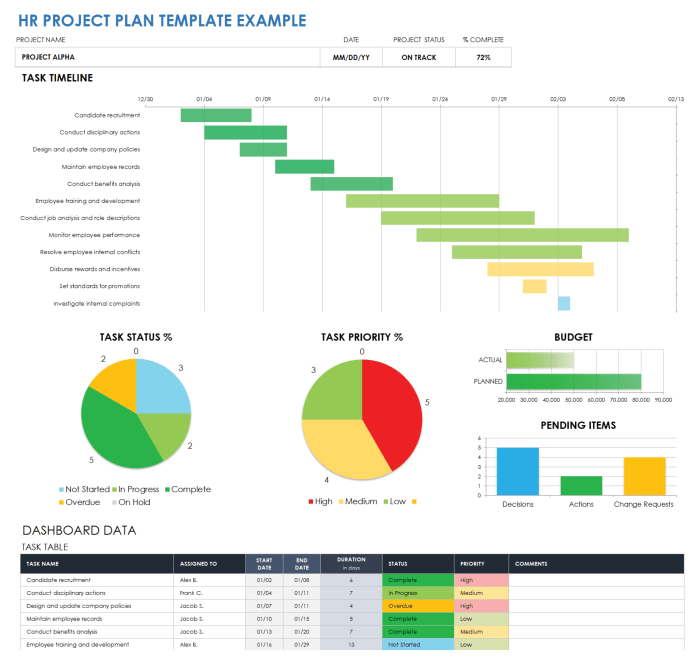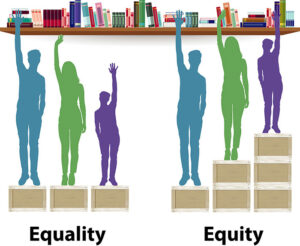
Project management platforms have become indispensable tools for organizations aiming to streamline their operations and enhance productivity. They offer a suite of features that cater to various aspects of project management, such as task allocation, progress tracking, and team collaboration. In this discussion, we will explore the multifaceted benefits these platforms provide, ranging from fostering innovation to facilitating effective communication in international business.
As businesses evolve, the role of project management platforms continues to expand, integrating cutting-edge technologies and enhancing strategic planning capabilities. Whether you are a small business owner or a project manager in a large corporation, understanding how these platforms function can significantly impact your management practices and overall success.
Understanding Project Management Platforms
Project management platforms are essential tools in today’s business environment. They help teams plan, execute, and track projects efficiently, ensuring that goals are met on time and within budget. Understanding these platforms can significantly enhance productivity and collaboration among team members.Key features of project management platforms include task management, collaboration tools, time tracking, reporting, and integration with other software. These features enable teams to streamline their processes and maintain clear communication.
The benefits of using a project management platform in a business context are numerous, such as improved organization, enhanced visibility into project progress, and better resource allocation.
Comparison of Project Management Platforms
Several project management platforms are available in the market, each with its unique strengths. Here’s a brief overview of some popular options:
- Asana: Known for its user-friendly interface, Asana facilitates task assignments and progress tracking.
- Trello: Utilizes a card and board system, making it ideal for visual project management.
- Monday.com: Offers extensive customization options and automation features, catering to diverse business needs.
- Jira: Primarily used for software development, Jira excels in tracking bugs and agile project management.
Business Innovation and Project Management Platforms
Project management platforms are crucial drivers of business innovation. They provide the structure necessary for creative teams to execute their ideas efficiently and effectively. By employing these tools, businesses can foster an environment where innovation thrives, leading to new products, services, and processes.Innovative projects managed through these platforms include software development initiatives, marketing campaigns, and product launches. For example, a tech startup may use a project management platform to coordinate the development of a new application, ensuring that all stakeholders are aligned and informed.
Integrating New Technologies
Integrating new technologies with project management tools enhances their effectiveness. The incorporation of AI and machine learning can automate routine tasks, freeing up time for strategic planning. Additionally, collaboration with remote teams has become seamless with tools that offer real-time updates and communication features.
International Business and Project Management
In the realm of international business, project management platforms play a pivotal role in coordinating operations across diverse geographical locations. They facilitate communication and collaboration among teams spread across different time zones and cultures, making global project execution more manageable.However, businesses face challenges, such as language barriers and varying regulatory environments, when using project management platforms on a global scale.
Successful international projects, like the rollout of a global marketing campaign, often rely on a centralized platform to ensure coherence and consistency.
Challenges in Global Operations
Some common challenges include:
- Time zone differences leading to delays in communication.
- Cultural misunderstandings affecting team dynamics.
- Legal compliance issues that vary by region.
Conducting Business Interviews about Project Management
Interviews with project managers provide valuable insights into the effectiveness of various platforms. A structured approach is necessary to ensure that all relevant areas are covered.
Interview Structure
An effective interview structure might include questions about:
- Specific challenges faced while using the platform.
- Features that have significantly improved their project management experience.
- Suggestions for prospective users considering the platform.
Common challenges during these interviews often include miscommunication and vague responses. Identifying key qualities in a project manager, such as adaptability and problem-solving skills, is crucial for evaluating their expertise.
Job Search Techniques for Project Managers
Project management platforms can greatly enhance job search efforts for professionals in this field. Utilizing these platforms effectively showcases one’s skills and demonstrates familiarity with industry-standard tools.
Showcasing Skills in Resumes
When crafting resumes, it’s essential to highlight proficiency in project management platforms. Mentioning specific certifications, such as PMP or PRINCE2, can also provide a competitive edge. Essential certifications related to project management platforms may include:
- Certified ScrumMaster (CSM)
- Project Management Professional (PMP)
- Agile Certified Practitioner (PMI-ACP)
Business Management Strategies with Project Management Tools
Project management platforms can dramatically enhance business management practices by providing tools for better organization and collaboration.
Improving Team Collaboration
To leverage these tools, businesses can adopt several strategies:
- Encourage regular updates and check-ins through the platform.
- Utilize shared calendars and task lists to ensure transparency.
- Integrate project management tools into daily workflows to maximize their benefits.
Marketing Direct and Project Management Platforms
Marketing campaigns can significantly benefit from the structured approach provided by project management tools. These platforms allow teams to track the performance of marketing projects effectively.
Tracking Performance
To achieve alignment between project management and marketing objectives, teams can:
- Set clear KPIs within the project management platform.
- Use dashboards for real-time monitoring of campaign progress.
- Facilitate feedback sessions using the platform’s communication features.
Business Networking through Project Management Platforms
Project management platforms can also foster networking opportunities. By connecting professionals across various industries, these tools facilitate collaboration and partnership building.
Enhancing Collaboration with Stakeholders
Methods to enhance networking include:
- Utilizing shared workspaces to invite stakeholders to view project progress.
- Engaging in discussions through the platform’s communication tools.
- Hosting virtual meetings directly within the project management interface.
Business Outsourcing and Project Management
Managing outsourced projects can be streamlined through project management platforms, which help maintain alignment between internal teams and external partners.
Best Practices for Collaboration
Best practices for collaborating with external teams include:
- Establishing clear communication protocols.
- Setting defined project milestones and deliverables within the platform.
- Regularly reviewing project progress and adjusting plans as needed.
Business Presentations Using Project Management Data
Creating effective project management presentations requires a thoughtful approach. A well-structured template can enhance the clarity and impact of the presentation.
Tips for Visualizing Data
Techniques for visualizing project data for stakeholders may involve:
- Using graphs and charts to illustrate progress and outcomes.
- Incorporating infographics for summarizing key points.
- Engaging the audience with interactive elements using presentation tools.
Enhancing Business Productivity with Project Management Platforms
Tracking productivity is essential for ensuring that business goals are met. Project management tools can provide insightful analytics to assess team performance.
Case Studies of Productivity Improvement
Many businesses have improved their productivity through platforms by:
- Implementing automated task assignments to reduce manual work.
- Using time tracking features to identify bottlenecks.
- Encouraging accountability through milestone tracking.
Project Management in the Restaurant Industry
Project management platforms can help streamline operations in the restaurant industry, facilitating better coordination and efficiency.
Challenges in Implementation
Challenges faced in implementing project management in restaurants can include:
- Resistance to change among staff.
- Balancing day-to-day operations with project initiatives.
- Training staff to use new tools effectively.
Resumes and Cover Letters for Project Management Roles
Crafting a compelling project management resume involves highlighting key achievements and relevant experiences.
Elements to Include in a Resume
Key elements should cover:
- Specific project management experiences and successes.
- Proficiency in relevant tools and methodologies.
- Quantifiable results showcasing the impact of your work.
Business Retail Management using Project Management Tools
Retail operations can greatly benefit from project management platforms, enhancing efficiency and customer satisfaction.
Key Benefits for Retail Businesses
Key benefits of using project management tools in retail include:
- Improved inventory management through better tracking.
- Enhanced team communication leading to quicker decision-making.
- Streamlined marketing campaigns that align with sales objectives.
Risk Management and Project Management Platforms
Identifying risks is crucial in project management. Project management platforms can support the development of robust risk management plans.
Creating a Risk Management Plan
Best practices for creating a risk management plan include:
- Utilizing risk assessment templates within the platform.
- Regularly updating the risk register based on project developments.
- Training teams on risk mitigation strategies.
Business Sales Strategies Enhanced by Project Management
Aligning sales strategies with project management processes can improve overall sales performance.
Tracking Sales Projects
To effectively track sales projects, teams should:
- Monitor progress against sales targets through dashboards.
- Regularly review and adjust strategies based on project data.
- Encourage collaboration between sales and project management teams.
Sales Management with Project Management Tools
Project management platforms streamline sales processes, making it easier to manage customer relationships and sales activities.
Measuring Sales Performance
Metrics to measure sales performance can include:
- Conversion rates from leads to sales.
- Average deal size and sales cycle length.
- Customer satisfaction ratings following sales interactions.
Business Security Considerations with Project Management Platforms
Ensuring data security is paramount when using project management tools. Best practices can help safeguard sensitive information.
Protecting Sensitive Information
To protect data, businesses should:
- Implement strong user access controls.
- Regularly update passwords and security protocols.
- Conduct security audits to identify vulnerabilities.
Supporting Small Businesses with Project Management
Small businesses can derive significant benefits from utilizing project management platforms, helping to level the playing field with larger competitors.
Common Challenges for Small Businesses

Challenges faced by small businesses might include:
- Limited budgets for software investments.
- Inexperience with project management methodologies.
- Difficulty in balancing multiple projects simultaneously.
Tools for Solo Professionals in Project Management
Solo professionals can effectively use project management tools to manage their projects and clients, ensuring better organization and productivity.
Beneficial Features for Individual Project Managers
Features particularly beneficial include:
- Task management tools for prioritizing work.
- Time tracking for billing clients accurately.
- Collaboration features to communicate with clients efficiently.
Strategic Planning with Project Management Platforms
Project management tools play a vital role in the strategic planning process, helping businesses align their projects with overarching goals.
Integrating Strategic Goals
A structured framework for integrating strategic goals with project management may involve:
- Defining measurable objectives within the platform.
- Regularly assessing project outcomes against strategic targets.
- Adjusting plans based on performance data and market conditions.
Team Building through Project Management Platforms
Project management tools can enhance team-building activities, fostering a collaborative and cohesive work environment.
Improving Team Communication
Strategies for improving team communication include:
- Utilizing chat and messaging features for daily updates.
- Conducting virtual team-building activities through the platform.
- Encouraging feedback loops to enhance collaboration.
Venture Capital and Project Management
Project management platforms facilitate communication with venture capitalists by providing clear insights into project progress and financial performance.
Importance of Project Tracking
Project tracking is essential in funding proposals to demonstrate accountability and potential return on investment.
- Regular updates on project milestones can keep investors informed.
- Utilizing data visualization tools to present key metrics effectively.
- Engaging investors through collaborative platforms for feedback and support.
Workplace Communication Enhanced by Project Management Platforms
Features of project management tools that improve workplace communication include real-time updates, centralized documentation, and integrated messaging systems.
Best Practices for Effective Communication
Best practices may involve:
- Establishing clear communication channels within the platform.
- Encouraging open dialogue through regular team meetings.
- Utilizing shared documents for transparency in project information.
Ensuring Workplace Safety with Project Management

Project management platforms can support workplace safety initiatives by tracking compliance and safety protocols.
Tracking Safety Compliance
Methods for tracking compliance in project execution may include:
- Regular safety audits documented within the platform.
- Training sessions scheduled and tracked through project management tools.
- Creating a safety incident reporting system within the platform.
Wrap-Up
In conclusion, leveraging project management platforms effectively can lead to improved productivity, better team dynamics, and enhanced innovation within organizations. As we navigate the complexities of modern business, adopting these tools not only aids in managing projects efficiently but also fosters a culture of collaboration and continuous improvement. Embracing these technologies could very well be the key to unlocking your team’s potential and achieving your business goals.
Quick FAQs
What are project management platforms?
Project management platforms are software tools designed to assist teams in planning, executing, and monitoring projects, offering features like task management, scheduling, and collaboration.
How do I choose the right project management platform?
Consider factors such as team size, project complexity, required features, and integration capabilities with existing tools when selecting a project management platform.
Can project management platforms be used for remote teams?
Yes, most project management platforms are designed to support remote teams by facilitating communication, file sharing, and collaboration regardless of location.
Are project management platforms suitable for small businesses?
Absolutely, many project management platforms offer scalable solutions that can cater to the needs of small businesses, helping them improve efficiency and organization.
How can project management platforms improve team collaboration?
These platforms enhance team collaboration by providing a centralized space for communication, task assignments, and project updates, ensuring everyone is aligned and informed.





